A photo walk with a Pentax Spotmatic film camera to “Los Caracoles”, a unique area in the Sierra Mágina Natural Park comprising a millstone quarry and an abandoned stonemason settlement with stone huts of drywall construction. We then continue to the nearby Cruz de la Atalaya.
Los Caracoles
“Caracoles” refers to small one-roomed structures, typically between 2 and 4 m diameter. They were built using loose, rough, dry stone walls without cement or mortar. The interior was finished using the false vault procedure. Some studies relate this architecture to ancient Celtic constructions from Asturias and Galicia.
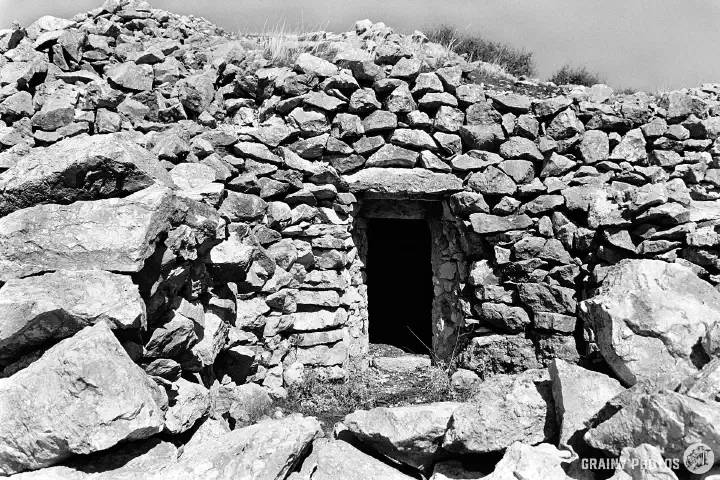
Its original settlers were ancient stonemasons who worked here for long periods away from their homes. They made millstones and wheels for grinding cereal to flour and olive presses for grinding and making olive oil. Two exceptionally well-preserved examples of the millstones can be found next to one of the hut entrances.
Making one millstone took an experienced stonemason between 30 and 45 days. Once completed, it was transported to its destination, initially by oxen and later by trucks.
Getting to Los Caracoles
Los Caracoles is 3km from the municipality of Jimena and close to the Pinar de Cánava, a small forest of centuries-old Aleppo pines with specimens up to 250 years old. Combining the two into one walk makes for an enjoyable walk. A variety of suitable walks can be found on Wikiloc.
Cruz de la Atalaya
From Los Caracoles, I continued my ascent towards Cruz de la Atalaya (Cross of the Watchtower) via a gradual incline to the summit of the hill, where the cross is situated. From the Cross, one can witness breathtaking panoramic views of the northern region of Jaén, encompassing the Sierra Mágina mountain range.
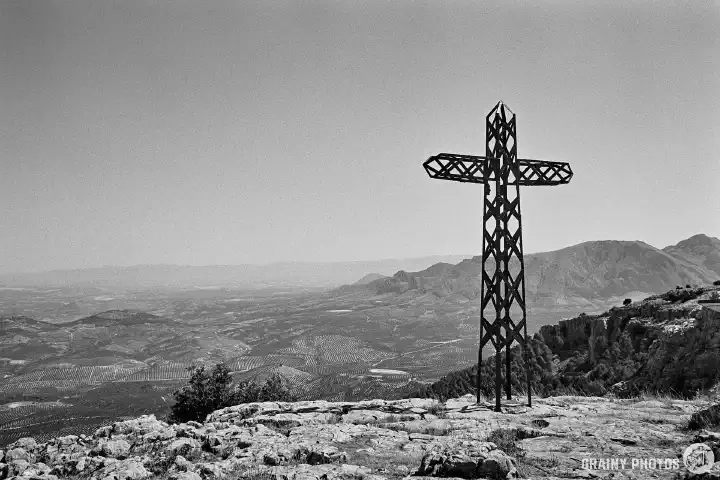
Legend has it that the cross was erected on the very spot where the army of Alfonso VII emerged victorious over the Arab forces. On that fateful night, a soldier was struck by a blinding and radiant light, which inspired them to persevere until triumph. Consequently, the Cruz de la Atalaya was constructed at that location, and it continues to protect the town of Jimena to this day. I have also heard that the cross serves as a lightning conductor.
Film photo details
I took all the photos on this page using a Pentax Spotmatic camera. For the Los Caracoles photographs, I used Kentmere 100 film rated at 64 ISO. For the Cruz de la Atalaya photographs I used Foma 100 film. Both were developed in Spur Acurol-N.
The photos were digitised using a Nikon Z6 mirrorless digital camera with a Tokina AT-X Pro Macro 100mm f2.8 D lens and processed using Capture One software.
Film roll No’s 362 and 432.
Los Caracoles and Cruz de la Atalaya photographs
Click on any photo to see a larger version.
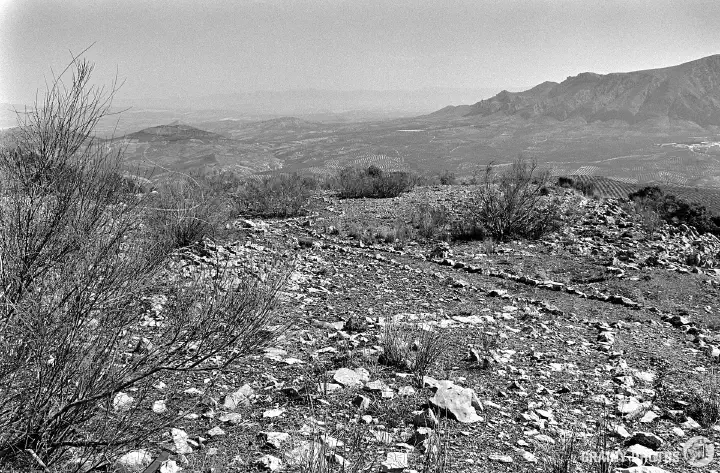
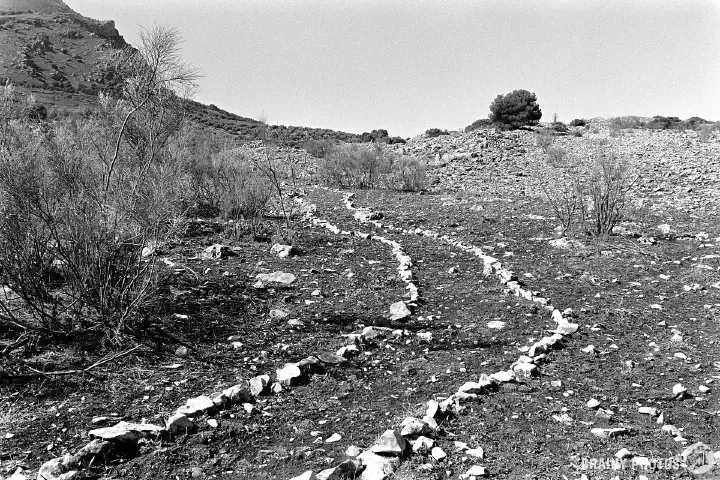
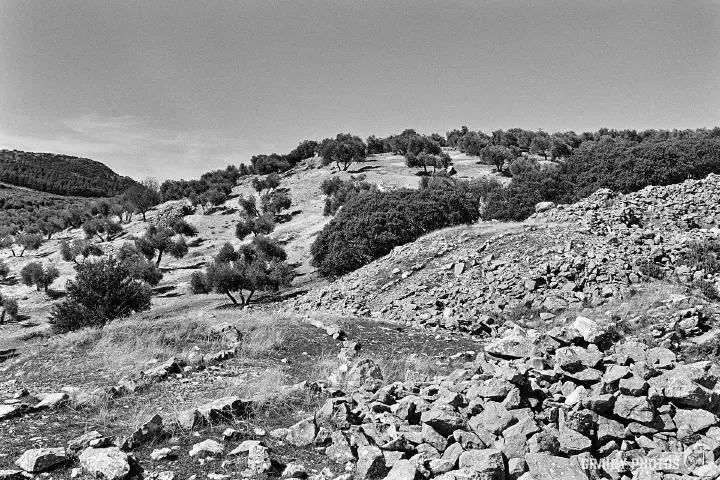
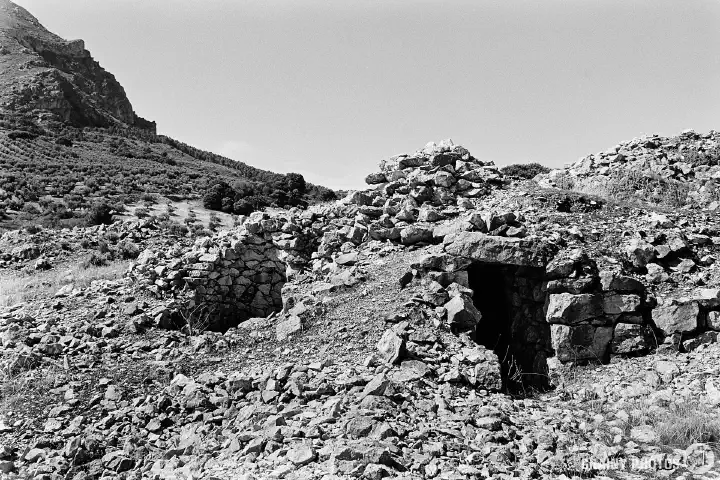
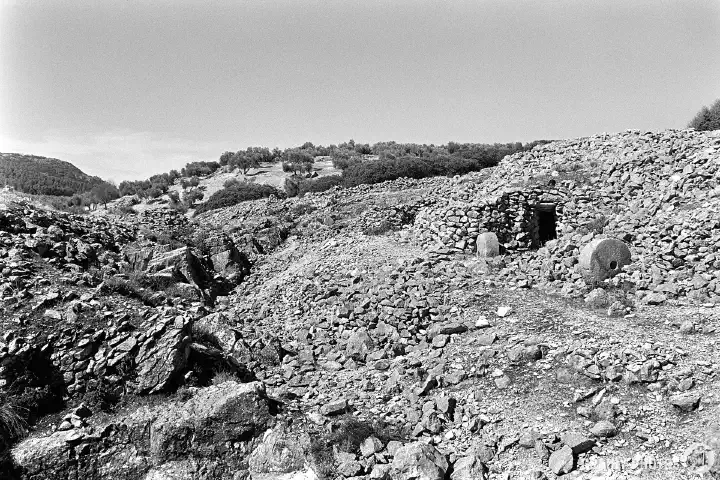
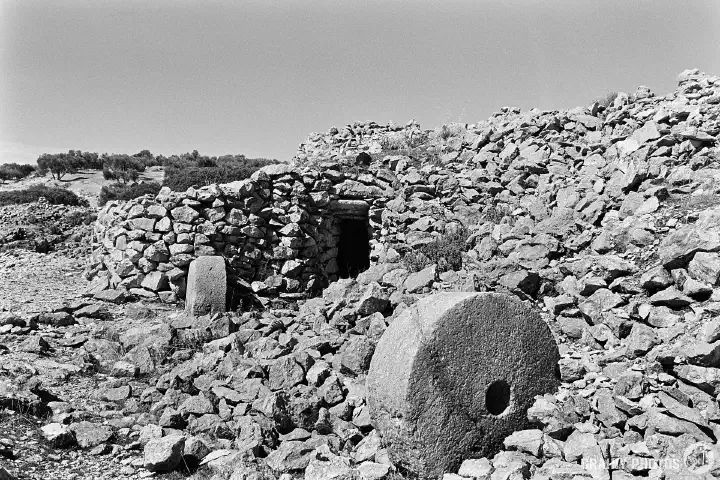
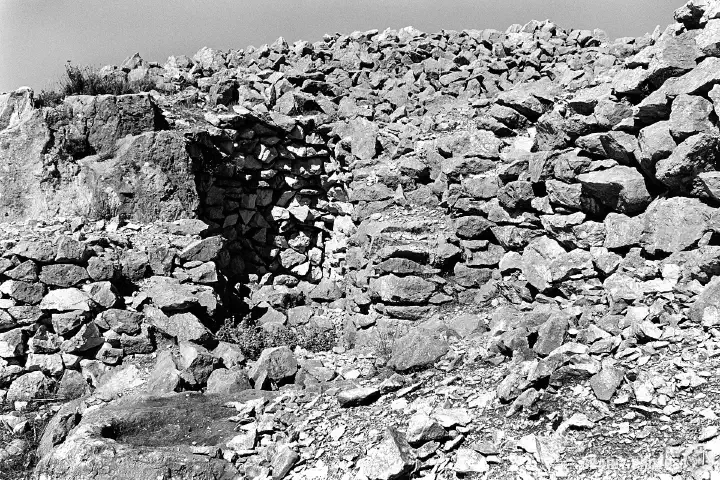
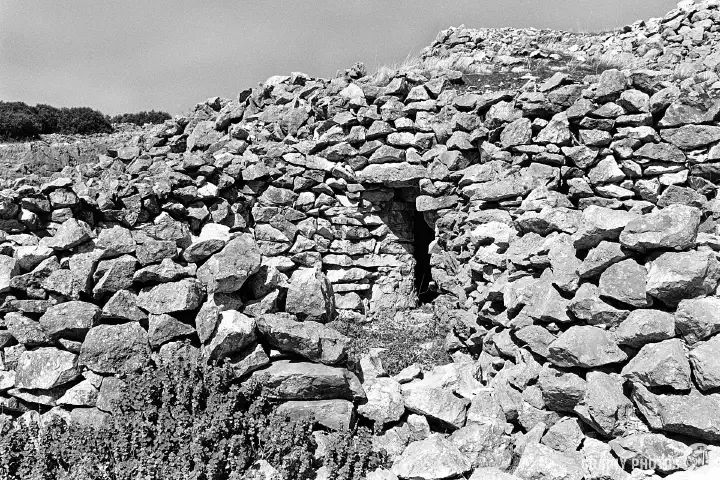

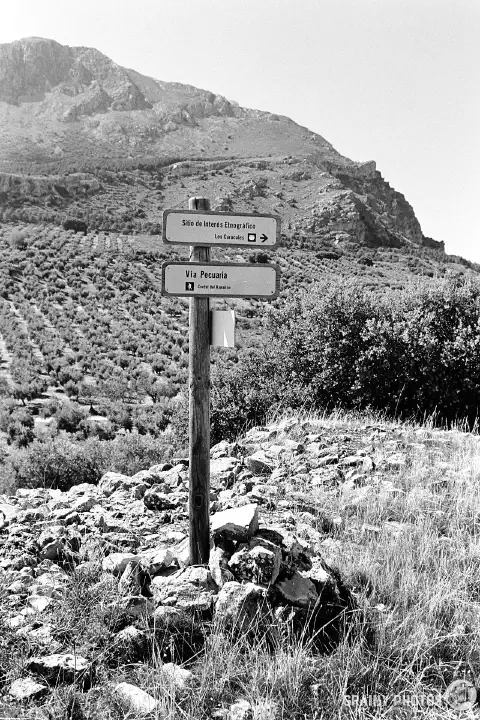
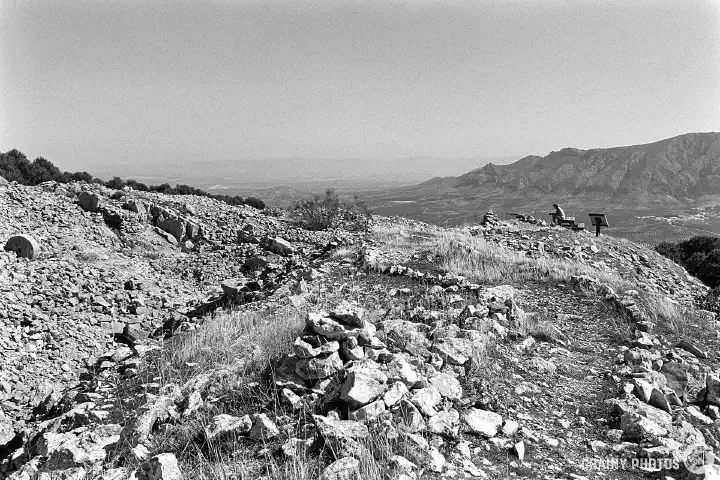

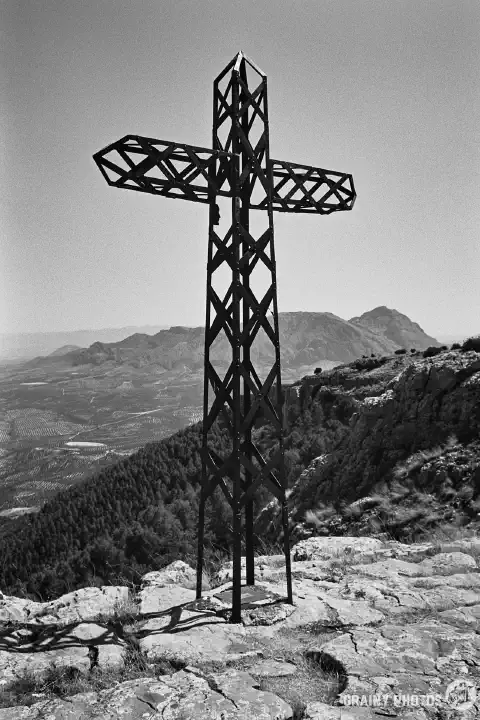
Similar posts
See more posts about Places in Spain.Publication date
This post was originally published on 1 December 2023, and updated, including the addition of information and photos of the Cruz de la Atalaya, on 14 December 20204.
